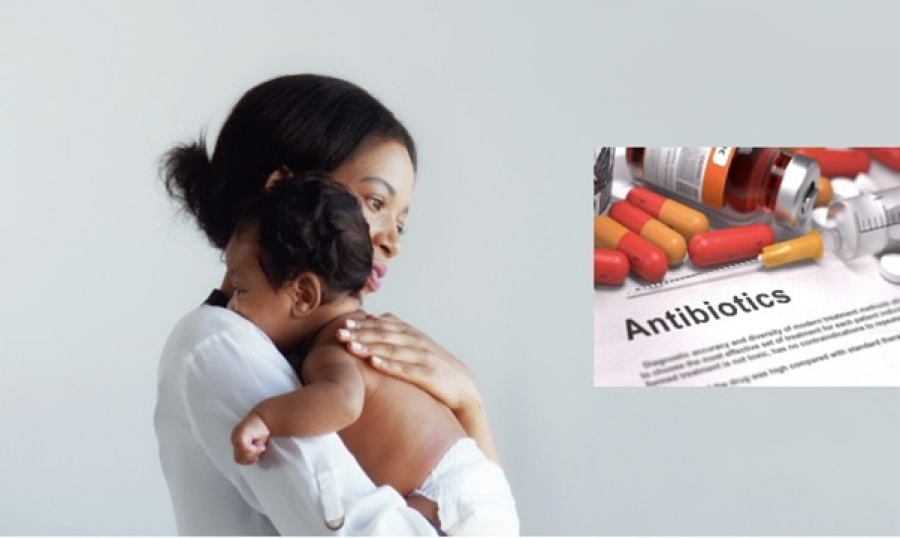A blog post by Afred Ngwa, Deputy Director of the AMR Centre
13 May 2024 London School of Hygiene & Tropical Medicine London School of Hygiene & Tropical Medicine https://lshtm.ac.uk/themes/custom/lshtm/images/lshtm-logo-black.png
While antimicrobial resistance (AMR) affects individuals of all ages, its impact on newborns is particularly concerning due to their vulnerability to infections and limited treatment options. A spotlight on AMR carriage among newborns is essential for understanding the scope of the problem and implementing effective interventions to mitigate the consequences. At LSHTM’s MRC Unit The Gambia, the group of Dr Abdoulie Bojang, an African Academy of Sciences APTI-NIH fellow, will focus on this important challenge.
Newborns are susceptible to infections due to their immature immune systems and exposure to various pathogens during birth and in the neonatal period. Infections in newborns from bacteria, viruses, fungi, or parasites, require prompt diagnosis and treatment. However, AMR infections increase the risk of treatment failure, prolonged hospitalization, and adverse outcomes.
AMR carriage among newborns can occur through vertical transmission from the mother, nosocomial infections acquired in healthcare settings, or community exposure. Maternal colonies of AMR bacteria could be transmitted to newborns during childbirth or through close contact postpartum. Additionally, newborns admitted to neonatal intensive care units (NICUs) are at increased risk of acquiring AMR pathogens due to prolonged hospitalisation, invasive procedures, and exposure to broad-spectrum antibiotics.
AMR carriage among new-borns is associated with higher morbidity and mortality rates, delays in treatment initiation and suboptimal outcomes. Meanwhile, the overuse and misuse of antibiotics in neonatal care exacerbate the problem by selecting for resistant bacteria and promoting the spread of AMR within healthcare facilities and in communities.
Dr Bojangs’ team are applying a multifaceted approach to address AMR carriage among newborns, including, antimicrobial stewardship (AMS), infection prevention and control measures, surveillance, and education. These approaches aim at promoting prudent antibiotic use, optimizing treatment regimens, reducing selective pressures driving the emergence and spread of AMR, and minimizing the transmission of resistant pathogens in healthcare settings.
By collecting data on antimicrobial susceptibility patterns and molecular characteristics of AMR pathogens in new-borns, trends in carriage, outbreaks can be determined. These data enable healthcare providers and policymakers to make informed decisions about antimicrobial prescribing practices and infection control strategies.
Education and awareness-raising activities targeting healthcare providers, parents, and the public are essential for fostering a culture of responsible antibiotic use and AMR prevention. Empowering healthcare professionals with knowledge and skills in AMS and infection prevention towards improving clinical outcomes and mitigating the spread of AMR in neonatal care settings. Likewise, educating parents about AMR, proper hygiene practices, and vaccination can empower them to take proactive measures to protect their newly born children from AMR infections.
AMR carriage among newborns is a complex and evolving challenge in neonatal care. By implementing comprehensive strategies that encompass AMS, infection prevention and control, surveillance, and education, they aim to mitigate the impact of AMR on newborn health and safeguard the effectiveness of antibiotics for future generations.
If you enjoyed this article and would like to build a career in global health, we offer a range of MSc programmes covering health and data, infectious and tropical diseases, population health, and public health and policy.
Available on campus or online, including flexible study that works around your work and home life, be part of a global community at the UK's no.1 public health university.